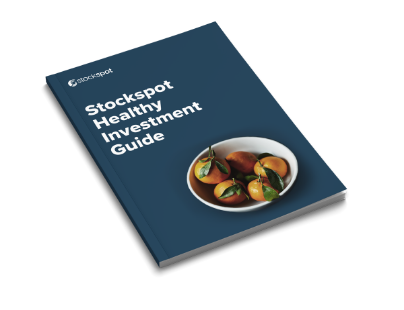Timing matters, but so does strategy
The recent approval of Bitcoin-tracking ETFs by the US Securities and Exchange Commission (SEC) and the cryptocurrencies rally into this global news, questions surrounding Bitcoin and its place in an investors portfolio have resurfaced. Here are the six considerations you should make, before deciding if now is the time you should invest in Bitcoin (or any other speculative investment).
Given the post volatility of Bitcoin, I will be exploring tips on how to invest to manage your risk and set yourself up for long-term success.
If you’re not sure what cryptocurrency or Bitcoin is, find out more in the article I wrote about cryptocurrency and the future of the industry. You can also learn more about the best Bitcoin and cryptocurrency ETFs in this article.
Before investing in Bitcoin or other cryptocurrencies, consider:
- Can I Afford to Invest in Bitcoin?
- Bitcoin’s Growth is Unpredictable
- Dollar Cost Averaging
- Your Counterparty Risk
- Rebalancing
- Ignore Short-Term Market Movements
1.Can I Afford to Invest in Bitcoin?
The first checkpoint is a fundamental one – are you in a position to invest? If you’re repaying high-interest debt, it might be wise to prioritise settling those debts before considering a venture into speculative investments.
As with any investment, you should consider if you can afford to weather market volatility and if, or when, you would be likely to need the money to pay other financial commitments.
2. Bitcoin’s growth is unpredictable: limit your exposure to losses
There is no certainty what Bitcoin will be worth in 2025, let alone in the shorter term of the next few months. Investors should take an approach that considers not just if you can afford to invest in Bitcoin now but how long you can afford to hold Bitcoin before selling. It’s wise to limit your exposure to risky investments like Bitcoin to a small percentage of investment portfolio weighting your wealth. That way, if it doesn’t work out you won’t be devastated financially.
Some of the biggest success stories in the share market have suffered massive losses during their troughs, limiting exposure to volatile assets in your portfolio, offers a way to protect your returns. Balancing your portfolio mix would mean you still benefit from any uplifts in Bitcoin value, should they arise, all while minimising any need to sell your Bitcoin if it takes a downturn
3. Dollar cost averaging
With risky investments, it’s worth dollar cost averaging rather than buying your entire amount at once. Buying small amounts over time is obviously more difficult with some assets (like art) but can be done with individual shares or Bitcoin.
By dollar cost averaging you can reduce the chance of being like the investors who bought Amazon in 1999 for $110, and waiting 10 years to get back to breakeven.
Dollar cost averaging improves your chances of doing well in the long run if you’re eventually right, because it reduces the impact of market timing. Trying to time the market is dangerous because the most tempting time to buy is usually the time you shouldn’t be. Bitcoin in 2017 was a great example of market timing. A lot of people invested too much of their savings near the highs of $20,000. A better strategy would have been drip feeding small amounts, which would have offset the effect of the Bitcoin price falling to approximately $4,000.
4. Know your counterparty risk
The recent approval of Bitcoin tracked ETFs is a monumental moment in reducing the counterparty risk, associated with investing in it, significantly. It is however essential to understand where your money is stored and how the ETF manages counterparty risks. Transparency is key.
Previously, many people held Bitcoin via Bitcoin exchanges. When you invest this way, you don’t hold the underlying asset, and you’re relying on someone to hold and manage it on your behalf. This adds an extra level of risk, called counterparty risk. Some Bitcoin exchanges have gone bust, and many Bitcoins have been stolen. Unfortunately, little protection exists in this area for consumers.
We have previously explored the best Bitcoin ETFs on the ASX and I recorded a video exploring my answers to the question ‘should I invest in a crypto ETF?’ and should I invest in Bitcoin in 2024?, which both provide more information on this.
5. Embrace Rebalancing
Bitcoin’s rapid appreciation and volatility present an opportunity – rebalancing. Rebalancing allows you to lock in some of your profits to reduce your risk. If you’re lucky enough to make outsized gains in any speculative investment, don’t forget to rebalance. Strategically selling some when an asset is performing well and reinvesting during downturns can be a psychological and financial win. Setting up a systematic rebalancing plan is crucial.
With Bitcoin, let’s say you bought at the start of 2017 when Bitcoin was trading at $1,000 and allocated 2% of your wealth.
By the end of 2017 when Bitcoin traded at nearly $20,000, the amount invested in Bitcoin might have been approximately 26% of your savings – a much bigger part of your portfolio. To ensure proper diversification, you’d want to take some of that money out, and put it back into another underperforming asset.
Investors who followed this strategy avoided the large 80% drop in the Bitcoin price that occurred during 2018. Those that didn’t rebalance lost a lot of money because they didn’t harvest some profit, which is essential for minimising regret.
Rebalancing is a great way to maximise the performance of your investment, and this is not limited to investing in Bitcoin. During the Covid market downfall, Stockspot’s portfolio rebalancing helped clients with additional 1-1.9% portfolio return.
6. Ignore short-term market movements
Investing in speculative assets requires a disciplined mindset. Ignore the short-term market movements. Set your goals, forget the noise, and resist the urge to check your investment daily. Investing in Bitcoin is no different, ignore the temptation to try and play the market, instead look at it as an addition to a longer term investment strategy.
Watching Bitcoin prices go up and down on a daily basis will almost certainly cause you to buy and sell too often and destroy any long term gains. If you’ve followed the above rules, be confident in your process and ignore the daily noise because it’s irrelevant if Bitcoin is successful in the long term.
Conclusion
In conclusion, if you’re considering investing in Bitcoin in 2024, remember these tips. Bitcoin can, if you wish to invest in it, be an exciting addition to your larger investment strategy.
Broadly speaking, I see Bitcoin could reasonably form a small part of a diversified portfolio. In my view, bitcoin should be considered a high volatility growth asset and not a defensive asset.
Stockspot investors with account balances over $20,000 can access bitcoin via the Cryptocurrency Theme.
Investors can use Stockspot as their core investment strategy to help them build long term financial growth while also adding a satellite percentage allocation to Bitcoin.
Find out how Stockspot makes it easy to grow your wealth and invest in your future.






